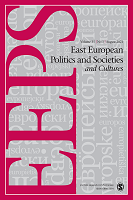Genesis of a Social Space: Think Tanks in Belarus 1992–1995
Genesis of a Social Space: Think Tanks in Belarus 1992–1995
Author(s): Maria BigdaySubject(s): Politics, Regional Geography, Civil Society, Labor relations, Transformation Period (1990 - 2010), Post-Communist Transformation
Published by: SAGE Publications Ltd
Keywords: Post-Soviet politics; think tanks; field of power; transnational diffusion; Belarus;
Summary/Abstract: The article looks at think tanks through the prism of a specific social space whose emergence is ascribable to both transnational processes and local social structures. Four processes are identified as shaping the institutionalization of the first think tanks in Belarus, founded as a tool for the “desovietization” of science and “democratization” of politics in the early 1990s: (1) the destabilization of relations between science and politics spurred by the Soviet perestroika beginning in 1986; (2) the autonomization of national elites and a political field in Belarus following the collapse of the Soviet Union; (3) the transformation of the labor market, including the crisis of state-supported research and academia, which ejected a large number of well-educated professionals; and (4) the intensification of transnational exchanges and the legitimization of references to Western practices. To systematically analyze these processes, a model consisting of the following four dimensions is proposed: configuration of relations between science and politics, position of the think tank space in the field of power, professional logics of career or competition, and transnational diffusion of resources and their local appropriation.
Journal: East European Politics and Societies
- Issue Year: 35/2021
- Issue No: 03
- Page Range: 768-789
- Page Count: 22
- Language: English
- Content File-PDF

